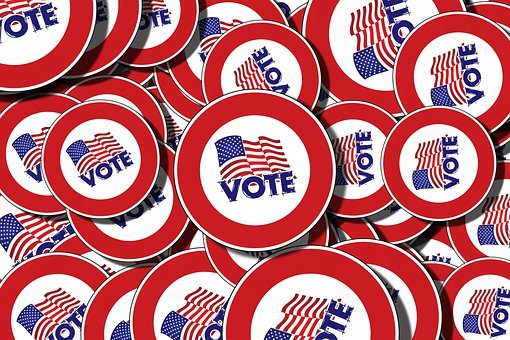The first time I witnessed my mom voting I was about 8 years old while we lived in Colombia. At the time, I did not really understand what she was doing, what impact it had, or why it was all that adults talked about.
The next time I would witness her voting would be in 2020. After successfully becoming a U.S citizen just weeks prior to the pandemic’s start, in 2020 my mom and stepdad were able to cast their vote just a few days before election day at their local City Hall thanks to the emergency order set at the time.
Like my parents, 62 percent of Rhode Islanders voted early in person or by mail in the 2020 general election. Through the shadows of the pandemic, we found ourselves as a state and nation understanding that when it comes to exercising our right to vote, we should prioritize health, safety and equitable access. As a result of this, the Let RI Vote Act was born. This legislation, which has been introduced by Sen. Dawn Euer and Rep. Katherine Kazarian, is supported by more than 30 organizations representing a wide array of communities and sectors such as unions, housing, civil rights organizations, and many more.
This is exactly what the Let RI Vote Act is seeking to do.
Upon passage, the act would provide access to mail ballots for those who need it without requiring a notary or two witness signatures, which are a hurdle for most Rhode Islanders. Additionally, an online form to request mail ballots will be created, because who has a printer at home nowadays? (not this millennial, for sure!)
The act would also preserve an early voting option for voters who would like to cast their ballot in person during the 20-day “emergency voting” period before Election Day without the need for an excuse or special circumstance. As we saw in 2020, nearly 29 percent of voters cast their ballot before Election Day. This allows working adults, families, and individuals with disabilities greater flexibility and access to exercise their right to vote.
In fact, in an effort to close the access and language gaps for thousands of Rhode Islanders, this legislation will extend the deadline for requesting braille ballots and will create a multilingual voter information hotline. These two pieces are essential to ensuring that individuals with disabilities and those who speak a language other than English always have access to unbiased and correct voter information.
In an effort to maintain election protection, the act requires that the Secretary of State’s office update the voter file a minimum of four times per year. This will enhance the accuracy of voter lists by ensuring they are up to date.
An essential piece of being a democracy is the access and safety that citizens feel toward the voting process. As a nation, we have struggled since our inception with how we have defined the “right to vote.” For hundreds of years, we disenfranchised millions of Americans based on their race and gender. Today, some of us would like to think that we are beyond that. Sadly, we are mistaken. In fact, our federal government continues to ignore the need for basic voting rights protections for historically marginalized communities. States across the nation continue to enact legislation and practices to create additional barriers to the ballot box. Truth is, if we truly want a democracy, we must work harder to protect it.
SUGGESTION: Marcela Betancur: Prospering Through Hurdles And Strengths
Marcela Betancur is the proud daughter of Colombian immigrants and currently serves as the director of the Latino Policy Institute at Roger Williams University.
Publisher’s Note: It’s time to make voting safer and accessible in Rhode Island on The Valley Breeze.
LPI and RI Latino News; partners in elevating the visibility and voices of Rhode Island’s Hispanic-Latino communities.
Do you have an idea for an Opinion-Editorial? Send us your suggestions to Info@LatinoNewsNetwork.com.




